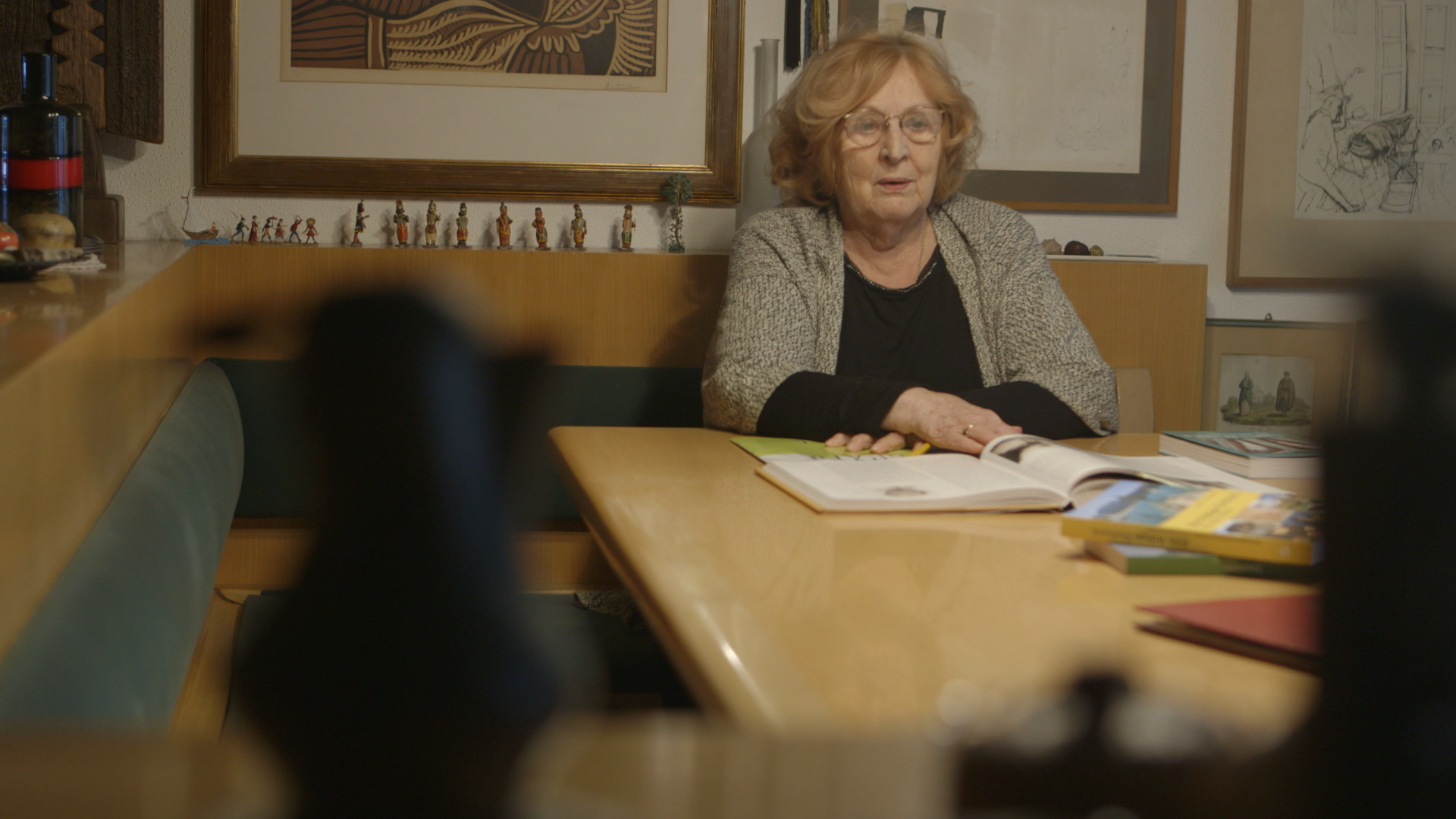Bruna Dal Lago Veneri: "Sante, sportive, salighe e anguane. Le donne delle montagne senza figli naturali"

Anguane e vivene start 00:08:38end 00:11:39 Bruna Dal Lago Veneri descrive le figure tradizionali delle salighe distinguendo le "anguane", creature delle acque, dalle "vivene", della selva. Esse si caratterizzano per non aver generato figli, ma rappresentano le grandi madri protettrici della natura e delle montagne.trascrizione BRUNA DAL LAGO VENERI: "Qui c'è una piccola variazione che mi sembra molto importante. Queste donne - che possono essere salighe, possono essere quelle che si chiamano anche "wilde frauen" cioè "donne selvatiche", selvatiche per modo di dire perché vivono nelle selve ma non in tanto altro modo -, queste donne hanno una capacità di essere estremamente vicine a tutti gli altri che loro ritengono come figli anche se mai hanno figliato. Cioè sono estremamente delle donne dell'antico matriarcato, delle donne che vivono questa loro funzione di donna, in fondo, anche come grande madre ma come grande madre non come madre nel senso fisico della parola. Loro sono le protettrici delle Alpi, le protettrici della Natura, protettrici dei bambini eccetera. Queste figure sono estremamente interessanti e sono divise, almeno nella letteratura popolare, a seconda della zona che loro così proteggono, prediligono, governano in qualche modo. Allora ci sono le "aguane" o "anguane": sono le creature delle acque, sono queste bellissime creature che sono le seguaci, non le progenitrici ma le seguaci delle sirene, in fondo, che hanno questo bellissimo aspetto, questi lunghi capelli verdi e sono creature delle acque. E qui c'è un'altra variazione molto interessante su queste aguane che sono coloro che salvano, in fondo, dalle acque le donne che nell'antica tradizione giudiziaria della tòrta terra, le infanticide, venivano affogate. E queste anguane salvano queste donne e le fanno anguane come loro, cioè le tengono nel loro gruppo. Trovo che la cosa sia terribile ma anche estremamente interessante. E poi ci sono invece le "selvane" che sono quelle dei boschi o le "vivene" e qui di nuovo la vivena ha la radice di "wasser", sono quasi anguane di nuovo. E sono queste varie creature che sono geni colonizzatori in qualche modo, sono protettori di tutta la natura, sono mediatori, per dire meglio, sono mediatrici fra il mondo della natura e il mondo dell'umano. E questa loro figura è estremamente aperta. Una delle più importanti di queste donne io l'ho conosciuta: è la mia amica Carlotta Berghena. Lei si chiamava una "bregostana" ed è quella che mi ha aperto, nel vero senso, la porta a tutte le tradizioni più interessanti e più scure del Regno delle montagne. Lei donna meravigliosa con due occhi di fuoco, grande madre nel senso che aveva adottato molti figli ma che non ha mai avuto figli."
English:
BRUNA DAL LAGO VENERI: "Here we have a small variation which I consider important: these women can be "salighe" can also be those called wilde Frauen, wild women, in a manner of speaking, because they live in the wilderness, not for any other reason.
These women have the capability to be very close to all the others that they consider as children, although they never gave birth. They are very much women of the old matriarchy, women who live their role as women, very deeply, as a Great Mother not mother in the physical sense of the word. They are the guardians of the Alps, the guardians of nature, guardians of children and so on. These figures are extremely interesting, and they are divided, at least in popular culture, they are divided in zones that they protect, favour, govern.
There are the "anguane" creatures of the waters, they are beautiful creatures who are not the forerunners but the followers of the mermaids, who are very beautiful, with long green hair. They are the creatures of the waters, and here there is a very interesting variation, about these "anguane" who save after all, from the waters, women who in the ancient judicial tradition the infanticides were drowned. And these "anguane" save these women, and turn them into "anguane" as well, keeping them in the circle. I find this dreadful but also incredibly interesting.
And then there are the "selvane" inhabiting the woods, or the "vivene" coming from the root word "Wasser", they are kind of "anguane". There are these creatures who somehow are the colonizers genes, they are the guardian of nature, they act as mediators between the world of nature and that of humankind. Their figure is very open, I have met one of the most important women of this kind.
It's my friend Carlotta Berghena she considered herself a bregostana and she was the one who truly opened up my eyes over the most interesting and obscure traditions of the Mountain Kingdom. She was a wonderful woman, with eyes like fire, great mother, as she had adopted many children although she never had any of her own."soggetto salighe anguane vivene madre montagna natura persone citate Berghena, Carlotta (bregostana) [persona citata]
